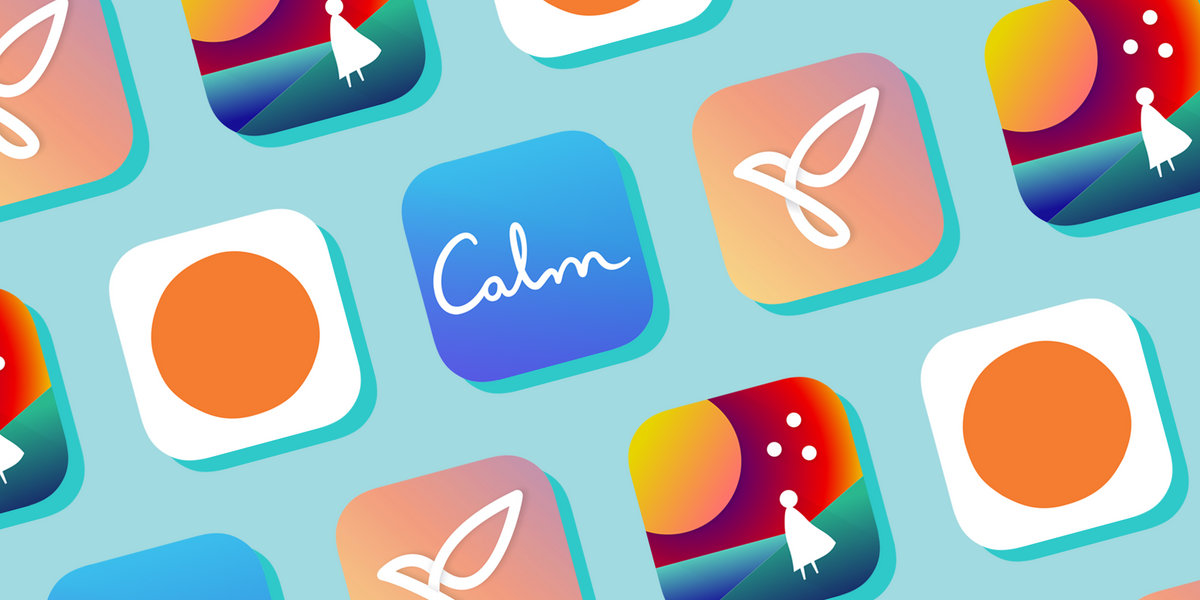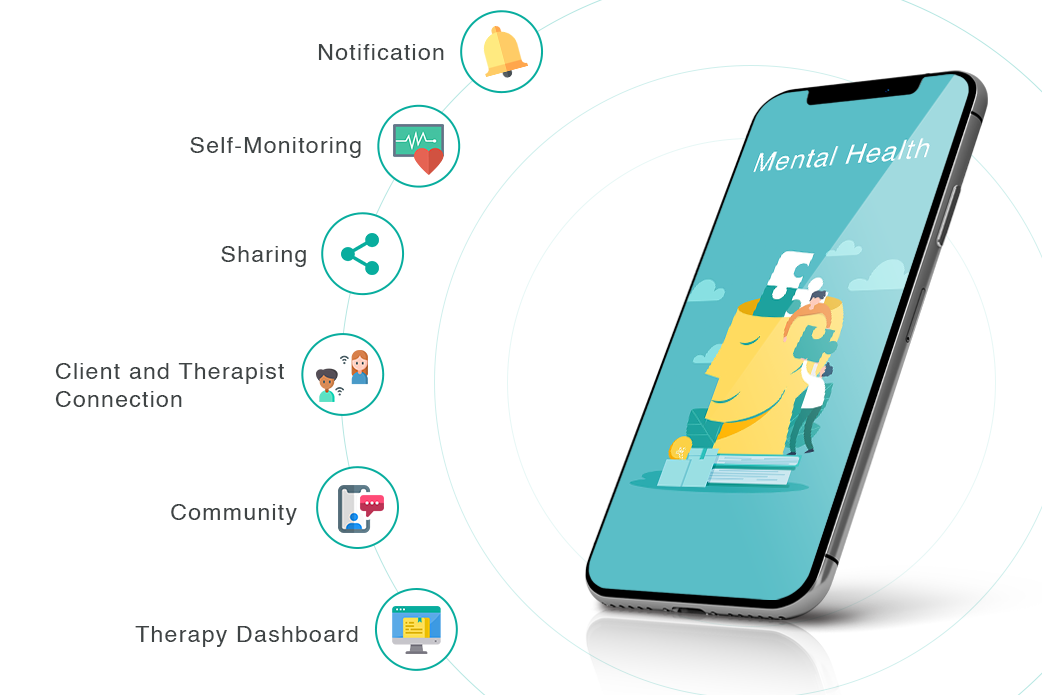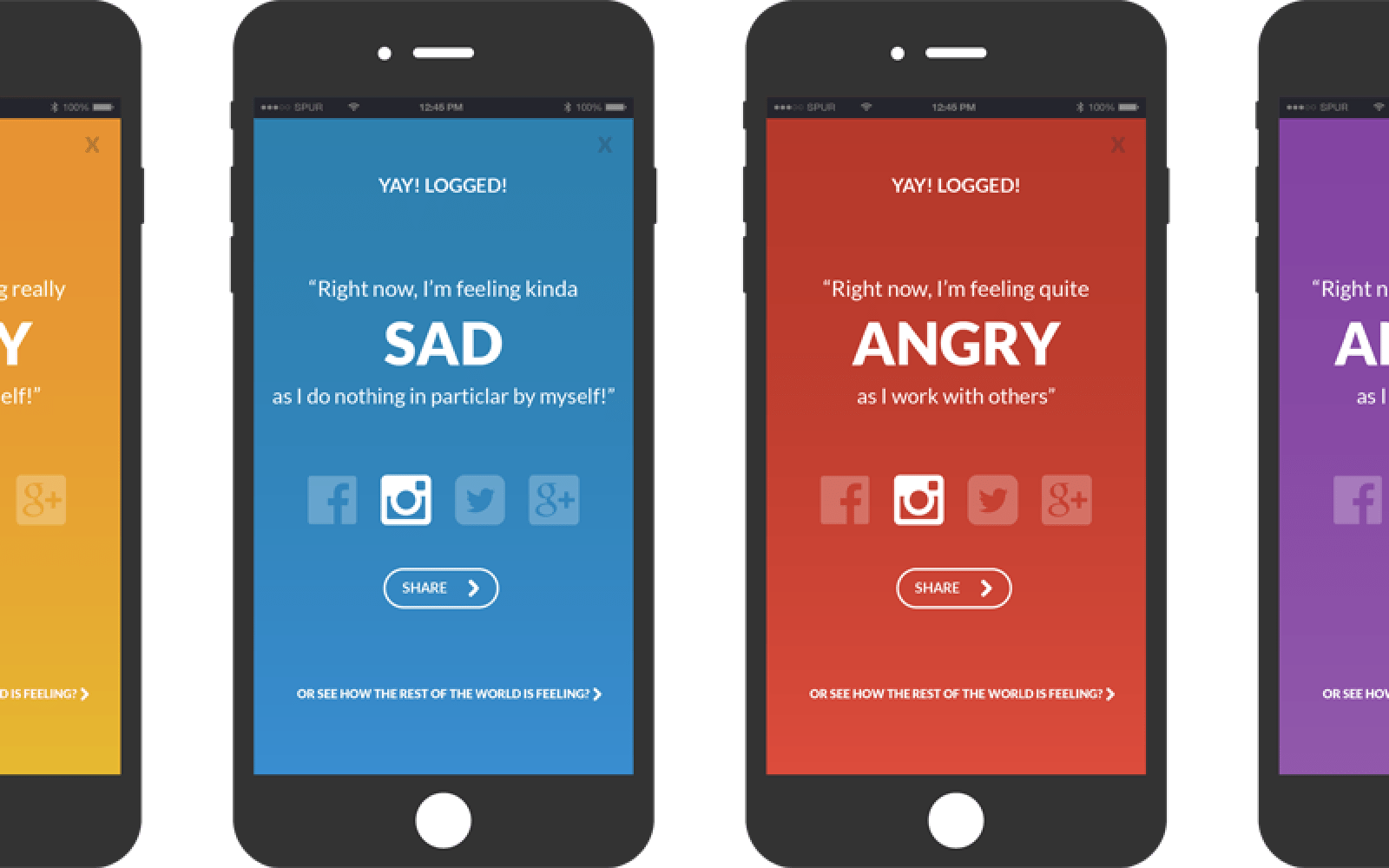With 7 mental health unicorns in the US, the digital mental health boom continues

A few minutes every morning is all you need.
Stay up to date on the world's Headlines and Human Stories. It's fun, it's factual, it's fluff-free.
Amid pandemic lockdowns, mental health issues skyrocketed worldwide. And because of social distancing restrictions, physical and face-to-face services weren’t as accessible, leading to a boom in the digital mental health industry.
Due in part to the necessity of online care brought on by pandemic-related lockdowns and quarantines, digital health services have become normalized and more popular around the world. As a result, mental health startups across the digital space have gained massive popularity in recent years, and venture funding for these startups has reached record highs, too.
“When the pandemic hit, there was a two-week pause,” Lisa Suennen, a healthcare investor who leads the venture fund at law firm Manatt, Phelps & Phillips, told Forbes. “And then everything went crazy.”
The mainstreaming of mental health and the contraction of the stigma surrounding mental illness has translated into speculation for different facets of mental health services online. Right now, there are seven mental health unicorns (a startup worth over US$1 billion) in the US, up from just two in 2020; they are Genoa, Lyra Health, Calm, BetterUp, Talkspace, Modern Health and Ginger.
The emerging trend of mental health startups online and unprecedented investment in them, though, begs a few questions. Will the upward trend continue post-pandemic? How does venture capital influence the field of mental health? Do these mental health projects genuinely benefit people? What kinds of regulations exist for digital mental wellness services?
To get some insight into this new craze, we did some research and spoke with Neena Lall, LCSW, MPH and Grouport Therapist. Grouport is a small counseling service for arranging accessible group therapy through video chat.
The pros of digital mental health services

Digital health services, also known as telemedicine, have been touted for their widespread accessibility. Visiting any kind of doctor or clinic can be difficult for those who don’t have access to transportation or don’t have sufficient health insurance. As more services have moved online, their costs remain low, and they’re available to anyone with access to the internet. Mental health services online are no exception.
According to research published in the journal Telemed J E Health, telemedicine was found to be more cost-effective (US$335 per patient/year) compared to routine care (US$585 per patient/year) and on-site care ($1,166 per patient/year).
Neena Lall sees a particular benefit to these new digital mental health services. “The only plus side to many of the therapy apps is that their advertising helps destigmatize therapy.”
With so many different mental health apps available for download, and some with backing from major celebrities, the de-stigmatization of mental health cannot be discounted. For instance, Harry Styles recorded a story for the popular meditation app Calm, which claims to help users lessen stress and anxiety.
This kind of tech “has the potential to help people without regular mental healthcare recognize and manage symptoms of mental illness,” according to Popular Science. Additionally, some studies analyzed in 2017 by assistant professor of psychiatry at Harvard Medical School John Torous and a team of psychologists suggest that, if they’re designed with a user’s health in mind and with input and approval from professionals in the field, certain apps might be as or more effective than in-person therapy.
Although, Torous suggests caution on that point, as research published since 2017 suggests instead that these mental health apps are more beneficial when combined with in-person therapy. Ultimately, though, the effectiveness of the market for mental health applications, or “mHealth,” comes down to how the technology was designed and each user’s needs.
The cons of mental health apps

It’s difficult to group mental health apps together as a single monolith. Some exist solely online and use digital tools like artificial intelligence (AI), while others effectively connect users with licensed mental health professionals. Regardless, though, it seems like there is little government regulation on mHealth.
Because of this lack of regulation, “they vary significantly in quality and type,” psychologist Stephen M. Schueller, Ph.D., an associate professor at the University of California, Irvine, and executive director of One Mind PsyberGuide told the American Psychological Association.
Popular Science explains this phenomenon: “App developers can make treatment claims without going through the FDA because the regulatory agency exercises what’s called ‘regulatory discretion’ with regards to mHealth apps. Because the risks associated with using the apps are relatively low, the FDA takes a laissez faire approach towards the mHealth market.”
With such a vast rollout of mental health apps, though, monitoring this market becomes especially cumbersome and challenging.
According to Lall: “The reality of the experience on these apps seems far from the promises they make. I have worked with a number of clients who tried one of the major apps briefly and found the experience lacking and in some cases even traumatic. This worries me for the people for whom it is their only experience with therapy and might be turned off from therapy altogether.”
Lall also understands things from a healthcare provider’s point of view. “On the therapist side, many are quitting when they learn that the fee structures are opaque and they are only making US$20 an hour (for perspective, Medicare pays US$136 for an hour of individual psychotherapy.)
“I’ve heard that some of the apps pay by word count in the text messages, which is a bizarre way to measure therapeutic productivity and has no relationship to outcomes. I have heard from clients that their therapist would just send CBT worksheets by text rather than really engage with them (I could imagine this might have to do with trying to reach word counts).”
Lall continues: “Some of the worst stories I have heard from clients who previously used the apps before coming to me involved obviously unprofessional and even unethical behavior. […] I wonder who the therapists are who are willing to accept such low pay.
“I also wonder how well the apps vet the therapists they hire especially as they have been bulk hiring to meet demand during the pandemic.”
With mental health apps becoming more prominent across the internet, that doesn’t mean each one will work for each individual, nor does even the most trustworthy digital mental health service work for every person looking to improve their state of mind. But there are organizations, like Psyber Guide, which rates the credibility, user experience and transparency of mental health apps. And, when considering any new health treatment, it’s advisable to speak with a licensed medical professional to see what would work best for you.
Have a tip or story? Get in touch with our reporters at tips@themilsource.com




Comments ()